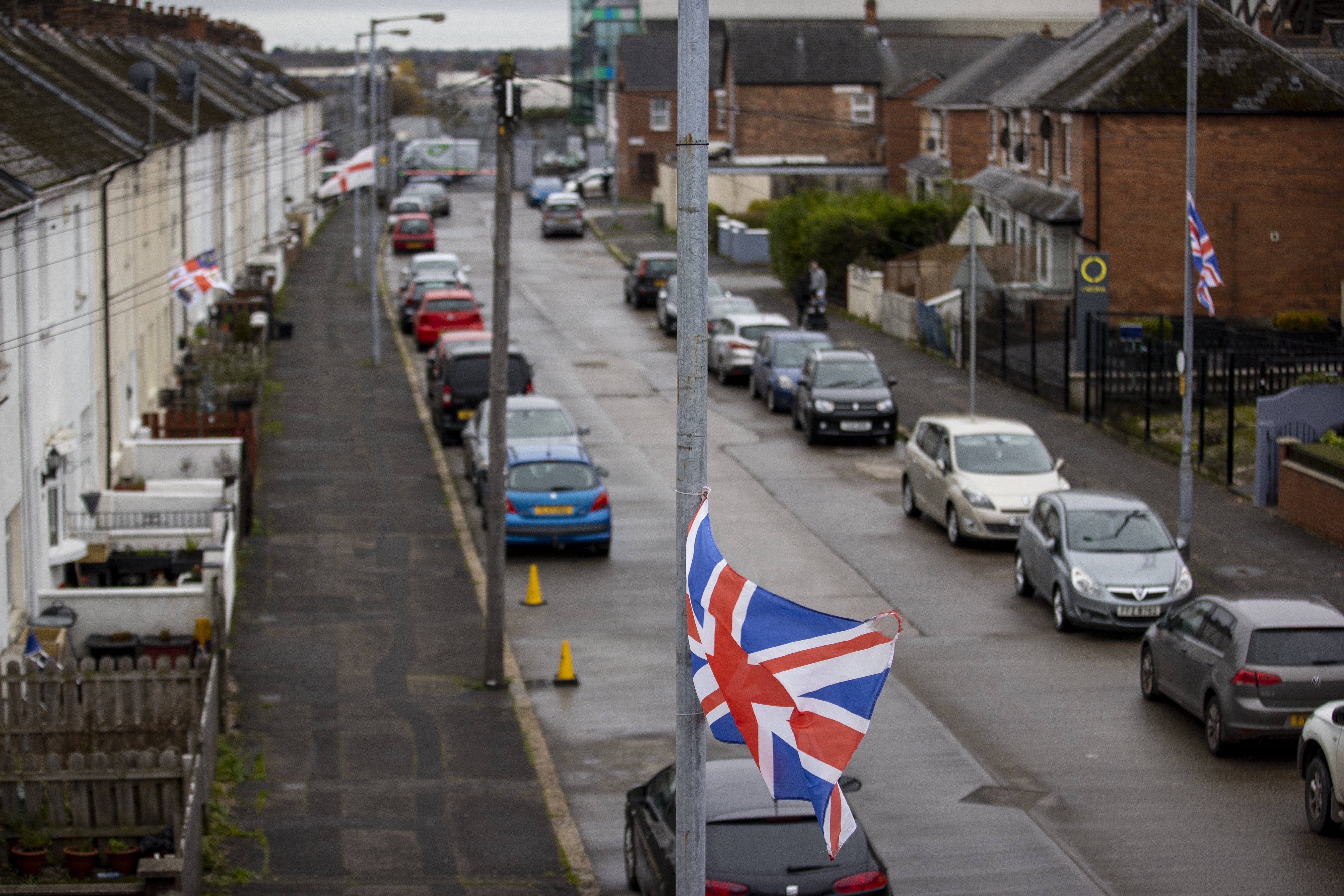Culture commission raises possibility of new civic flag for Northern Ireland
The Commission on Flags, Identity, Culture and Tradition was originally set up in 2016 in a bid to find consensus on a number of contentious issues.

A long-delayed report on flags and culture in Northern Ireland has failed to find consensus on changing legislation around the flying of flags from lampposts.
But the commissioners behind the report have raised the possibility of developing a new civic flag for Northern Ireland.
The report said that many “challenges remain” surrounding flags, bonfires and memorials.
There has already been criticism that the 168-page report, which has cost approximately £800,000, is not accompanied by a plan for implementing its recommendations.
The Commission on Flags, Identity, Culture and Tradition (FICT) was originally set up in 2016 in a bid to find consensus on a number of contentious issues, but devolution collapsed before it could deliver a report.
Its findings were submitted to the First and deputy First Ministers last July, and were finally published on Wednesday.
The report has made 44 recommendations but it is unlikely they will be enacted.
There are 15 commissioners, including seven from Northern Ireland’s political parties and eight independent members, overseen by Professor Dominic Bryan.
On the issue of flying flags on lampposts or other street furniture, the report states: “The commission could not agree on whether changes should be made to current legislation in order to create a similar exemption to that which exists for election posters.
“Consequently, without any legislative changes, the commission is not in a position to recommend a code of practice that would accompany any such legislative change.”
The report also said there had been “no meeting point” reached on the flying of flags at public buildings.
The commission did agree that flags should “never be flown in a worn or damaged condition, or when soiled”.
The report also said that flags supporting paramilitary organisations should not be flown.
The report continued: “The commission also discussed the possibility of developing a new civic flag.
“This would not be a regional flag or a national flag, but rather a civic flag that would be designed to be representative of the diversity of our society, including our new communities.
“Such a civic flag would therefore incorporate representations of Britishness, Irishness and our collective diversity.
“If this option were developed, it could add to the wider debate around the official flying of flags on public buildings.”
On the subject of bonfires, the commission recommended that the Executive recognise “that they are an important aspect of the culture, identity and tradition of communities and are therefore a legitimate form of celebration or commemoration, provided they are compliant with the law”.
The report stated: “The commission recommends that the NI Executive also considers the development of a skills-based arts programme that harnesses the creativity and talents of those involved in the construction of bonfires.”
The report finally recommended that an Executive action plan was produced on how to implement its recommendations, and a road map created to continue to explore the areas where challenges remained.
First Minister Paul Givan said the FICT report had considered a range of complex issues.
He added: “It is right that the public have a chance to see the report and have their say, and today’s publication will allow them to do that.”
Deputy First Minister Michelle O’Neill said: “The FICT report examines a number of sensitive issues across our community.
“Addressing these issues is an important part of moving our shared society forward and I put on record my thanks to the commission for their efforts in undertaking this challenging work.”
The working group led by junior ministers Gary Middleton and Declan Kearney, which was established to consider issues in relation to the report, will continue to meet.
Speaking earlier, Sinn Fein’s national chairman Mr Kearney said he believed that publishing the report without an implementation plan was a “mistake”.
He added: “I would much rather see scaffolding established in order to ensure an orderly implementation of those proposals within the report that I believe are deliverable.
“There are then clearly challenges which remain, but if we had had a framework of next steps then we could tackle those.
“It is for the parties who oppose the good sense of an implementation plan to speak and answer for themselves.”
SDLP MLA Sinead McLaughlin said: “The First Ministers have had the FICT report for more than 16 months, it has been eight months since the Assembly voted to compel them to publish the document.
“Now, having received their recommendations, Michelle O’Neill and Paul Givan can’t seem to agree on what to do with them.
“These issues go to the heart of divisions in our society and the failure to reconcile our people. It is far too important a challenge to allow this document to become an £800,000 ornament at Stormont Castle.”
DUP MLA Christopher Stalford said: “The answer on these matters is mutual respect but it is hard to come by when Sinn Fein campaigns to remove every trace of Britishness from Northern Ireland.
“Such cultural and identity weaponisation will make solutions very difficult to come by as some want cultural domination rather than respect.”
Bookmark popover
Removed from bookmarks